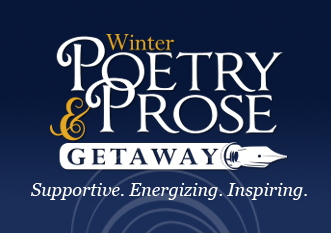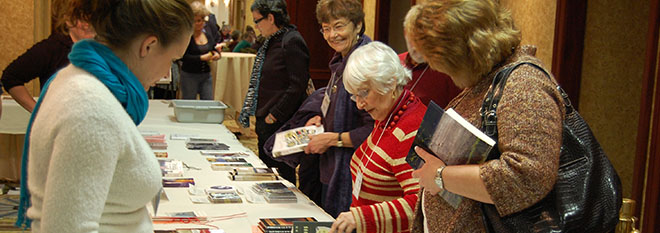Murphy Writing of Stockton College Presents

This entry is part of Getaway Reads, an e-mail series curated by Taylor Coyle that features the writing of the Winter Poetry & Prose Getaway faculty.
A Murmur of Growing Intensity
from Killing the Messenger
by Thomas Peele
That bright, sunny morning seemed like just another day. I had moved to California seven years earlier and had only recently committed to staying longer, having just turned down a good newspaper job in New Jersey. That summer I was in the throes of finishing a graduate writing program, and my mind was stuck on a looming thesis deadline. The radio was off, and as I drove I dictated ideas into a little recorder about how to finish that tome. As I entered Oakland, I didn’t know that a horrible murder had occurred an hour or so earlier just blocks away—a man had been gunned down on a busy city street by a masked killer.
I had worked for newspapers of various sizes since 1983, pulling myself upward from the traditional starting places of municipal-government and police beats, and now carried the somewhat overblown title of “investigative reporter.” I liked to dig, to get to the bottom of things, to find their roots, their causes. As sort of a subspecialty, I had also carved out a niche writing about the First Amendment, censorship, and press rights. People, I had come to believe, were often ignorant of journalists’ struggles to adequately serve them, the roadblocks we overcome, the daily fights to be watchdogs of the public interest. As I parked my car in the lot next to the long, flat, nearly windowless building that housed the Contra Costa Times, slung a bag over my shoulder, and grabbed my ubiquitous cup of black coffee, I had no idea that three booming reports of a shotgun in Oakland earlier that morning had signaled the convergence of many of my interests.
I walked into a newsroom in transition. The newspaper industry had not yet been rocked the way it would be a few years later, with massive layoffs and closures, but it was starting to tremble. The Contra Costa Times, once a part of the venerable Knight Ridder chain, had recently been put up for sale and bought by MediaNews, the same company that owned the nearby Oakland Tribune. A painful consolidation of news staffs that had competed for years was under way. Everyone, it seemed, was leery of losing their jobs.
As I entered, there was a commotion around the desks where the police reporters sat among an array of scanners and radios, a wall-mounted television dangling over their heads. Even to a skeptical veteran such as me, the buzz seemed different, a real story developing with a murmur of growing intensity about it.
“What’s going on?” I asked.
“Someone shot the editor of the Oakland Post,” a reporter told me.
“Dead?”
“Very,” she deadpanned, glancing up from a computer, a hand briefly covering the mic on her telephone headset.
A journalist? Really? I knew the Post was a small weekly that covered Oakland’s African American community, but I had no idea who was its editor.
“Chauncey Bailey,” the reporter told me and turned away to continue her call.
I knew the name, but only vaguely. Bailey had worked for the Tribune once and had gotten fired for some sort of ethical lapse. I asked an editor if anyone knew yet who had killed Bailey or why. He said no. I felt an immediate frustration. Before the merger, our newsroom would have mobilized to cover the story, but now Oakland was strictly the Tribune’s territory, and I could do nothing. And though I worked primarily on long investigative pieces that often took months, I wanted in on this breaking story. A journalist. Murdered. If someone had killed him over his work, then the implications were boundless.
A few minutes later my phone rang. It was a source I had developed in Oakland a few years earlier, a minor official who often proved helpful with information.
Two theories about the murder were raging across the city, he said, both fueled by rumors concerning Bailey’s personal life—he had been killed either by a jealous husband or boyfriend or by someone seeking retribution over an unpaid debt, a loan shark or shylock. My source had strong credibility, and his leads that Bailey’s slaying had to do with something other than journalism brought me a tinge of relief. It seemed overly dramatic anyway, I realized, to suggest that the editor of a weekly newspaper had been killed for reasons directly related to his job. The last local print reporter killed in the United States was Don Bolles of the Arizona Republic, who was investigating ties between business leaders in Phoenix and the Mafia in 1976 when he suffered fatal wounds in a car bombing. The little Oakland Post was not prone to the type of reportage that provoked anyone. I returned to an analysis of government pay data I’d been working on for months, thinking the Bailey story would blow over in a few days.
Half an hour later, my source called back.
“Bailey was working on a story about the Black Muslim Bakery,” he said.
“Holy shit,” I said out loud, as if I were playing a reporter in a B movie.
That phone call changed everything.
© Thomas Peele. Published in Killing the Messenger, published by Crown Publishers, 2012.
+ + + + + + + + + +
Thomas Peele is an investigative reporter and author. He has won more than 50 journalism awards during a career on both coasts and also teaches journalism and writing at University of California, Berkeley and University of San Francisco. His first book, Killing the Messenger, an examination of Black Muslim cults and the 2007 murder of California journalist Chauncey Bailey, was published by the Crown Books division of Random House in 2012. One reviewer called it “a masterpiece of contemporary historical narrative.” Peele’s essay about San Francisco chef Dennis Leary, “The Final Redoubt,” appeared in the book The Cassoluet Saved Our Marriage (Roost Books, 2013) and was a preliminary selection for Holly Hughes’s Best Food Writing 2013. In 2006, his essay on the collapse of the Knight Ridder newspaper company, “Oligarchies I Have Known,” was published in Controlled Burn and won the Association of Writers and Writing Programs’ Intro Journals Award. His work has also appeared in Columbia Journalism Review, Newsday, Huffington Post and San Francisco Bay Guardian. Peele holds an MFA in writing from the University of San Francisco and lives in Oakland, California with his wife and twin daughters. You can read an excerpt of Killing The Messenger on his website www.thomaspeele.com.
+ + + + + + + + + +
Want to study with Thomas Peele? At the 2015 Winter Poetry & Prose Getaway, Thomas will be leading Research for Writers.
+ + + + + + + + + +
Our Participants Say It Best
“Attending this year really reaffirmed my belief: for me participating in the Getaway it is not solely about honing craft, but also about obtaining the literary stimulation my brain demands as someone attracted to the literary arts. The Getaway is the warmest and most ideal environment to re-establish and rework the creative connections in my brain. The readings are stirring and insightful and the workshops are full of amazing discussion of craft mechanics. I leave feeling balanced, satiated and whole every time!”
~ Jin C., Jackson, NJ
Our Philosophy
Escape the distractions of your busy life. Advance your craft and energize your writing with a challenging and supportive Writing Getaway. Join us at one of our upcoming writing retreats and take advantage of plentiful writing time, insightful feedback, good meals and good company. Get Away to Write.




